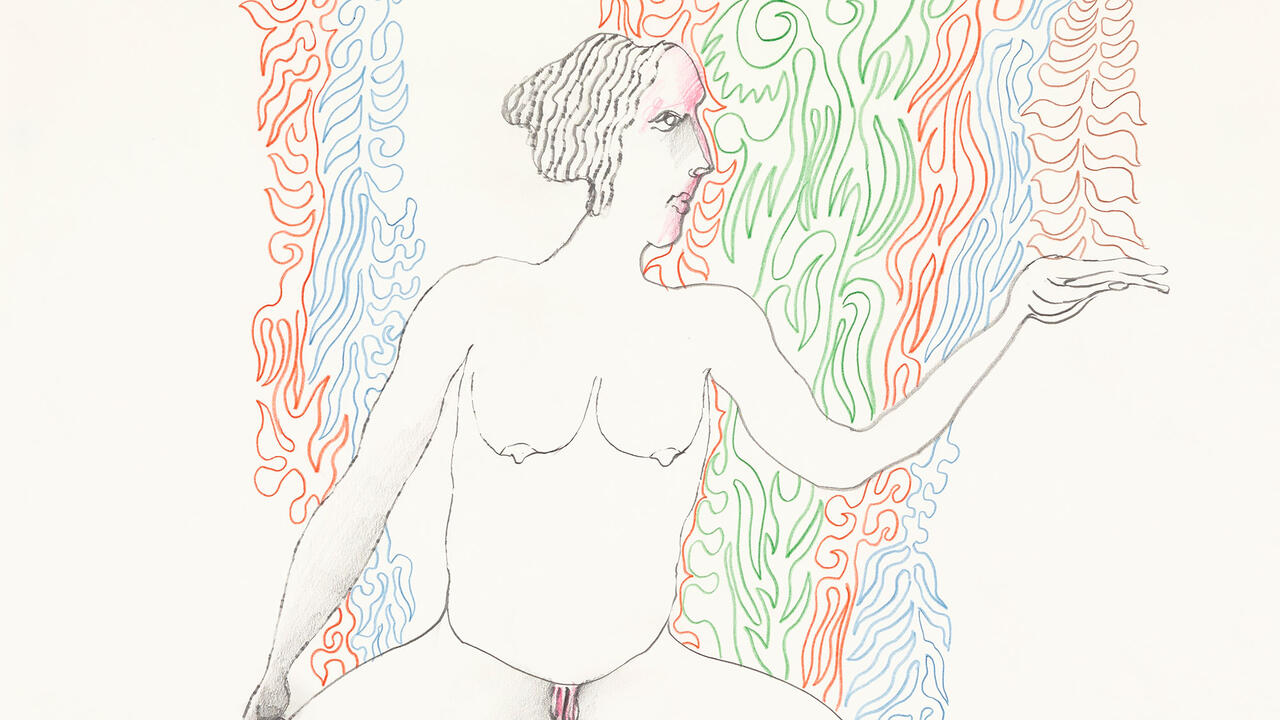‘Playing the Fiddle While Rome Burns’: This Year’s Steirischer Herbst
Fin de siècle squalor and sardonic masques in ‘Grand Hotel Abyss’, the 2019 edition of the annual Austrian festival
Fin de siècle squalor and sardonic masques in ‘Grand Hotel Abyss’, the 2019 edition of the annual Austrian festival

Ovid’s Metamorphoses (c. 8 AD) tells of a once loquacious yet duplicitous nymph, Echo, who was cursed to repeat the last words of others. Upon her death, Echo’s bones turned to stones that replicate the cries of people who pass through the mountains. This image of an unrequited call faintly rippling throughout time weighed upon me whilst visiting this year’s edition of Steirischer Herbst, the annual contemporary art festival in Graz. Under the direction of Ekaterina Degot, the affair, entitled ‘The Grand Hotel Abyss’, was meant to summon the sense of checking into an ironic hall lined with fin de siècle squalor wherein the international artworld seemingly danced and played the fiddle while Rome burned around them.
It all began with an ‘opening extravaganza’, a frenetic funhouse of simultaneous performances that condensed into a sardonic masque. Jule Flierl performed her Dissociation Study (2019), a piss-take on the western tradition involving a marble statue of Ludwig van Beethoven which Flierl mounted to sing an exaggerated rendition of Richard Wagner’s ‘Liebestod’ (from Tristan und Isolde, 1859) whilst pantomiming grotesque faces unrelated to the music’s melodrama. This emotional confusion and unrest was compounded by Alexander Brener and Barbara Schurz's The Speech (2019), which offered a vaudevillian clothed in a trippy caterpillar costume ranting that contemporary artists have simply become the hedonistic handmaidens of fashion and power. Perhaps due to my continual jetlag, I decided to leave most of the theatrical programmes behind for the fresh air of the festival’s public art program. As I walked by Eduard Freudmann’s temporary Monument to a Myth (2019), all I could think about was Echo, and the resounding thud of unfinished business that may never be sorted.

Positioned on a raised mound within a city park built upon an old bastion, the artwork wraps a bright fuchsia-coloured sleeve bearing the word ‘ÖDUOPFER’, which roughly translates to ‘Austria, you Victim’, around a pre-existing monument dedicated to the liberation from the Allied occupation of Austria. This mirrors a similar slogan made popular after World War II implying that Austria’s participation in the Holocaust was done under duress after the country’s alleged ‘forced’ annexation by Nazi Germany. Just after the festival opening, the conservative Austrian People's Party won a snap election, with the former chancellor emerging unscathed from the fudge of having his last collation collapse under a foreign bribery scandal.
The uses and abuses of historical parallelism resound in another public monument. Situated within a city square, Andreas Siekmann’s After Dürer (2019), is a realization of Albrecht Dürer's hypothetical Monument to the Vanquished Peasants (1525), which the artist drew at the close of the German Peasants’ War (1524–25), a genocidal slaughter in which the burgeoning middle class, Martin Luther and the aristocracy decimated a peasants’ rights revolt. Here, as in the Dürer, a serf ambiguously sits atop a column of war booty with a dagger stabbed in his back. It was an image co-opted, no less, by reactionary Germans following World War I. Such rhetoric led to the rise of the Nazi party, just as stories of treasonous perfidy reverberate across countless nativist demagogues today.

The festival's eternal refrains ultimately collapse into an infinite loop of wishful thinking as artists critique institutions and themselves not as a guide toward a greater politics, but as some sort of decadent end in itself. If we are to take the conceit of the festival's ‘Grand Hotel’ and its bad-faith denizens of a floating artworld at face value, it would appear that art, like Echo, is damned to lose its voice and agency. Instead of admonishing, even sarcastically, artists as advantaged fops, I would instead proffer that this very privilege is the bulwark from which they can mount a defence for those left outside the castle.
‘steirischerherbst’19’ took place between 19 September and 13 October 2019.
Main Image: Jule Flierl, Dissociation Study, 2019, installation view, ‘steirischer herbst ’19’, Graz; photograph: Mathias Voelzke
























